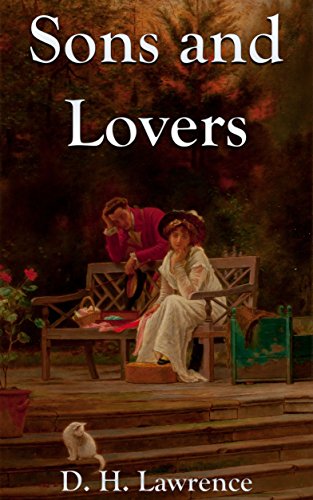William Morel is the eldest son of Gertrude and Walter Morel in D.H. Lawrence’s novel “Sons and Lovers”. He was just seven when he was first introduced to us. He is ‘a very active lad, fair-haired, freckled, with a touch of the Dane or Norwegian about him’. Though very young, he has a definite air of distinction around him. When he goes to school, he is at the top of the class and is said to be the smartest boy. At thirteen, he finds a job in the co-operative office. He also goes to night school; by the time he is sixteen, he is the best shorthand clerk and bookkeeper in the office. He is an active boy and has won several medals and prizes. He learns dancing and makes friends with several girls, who often come to his house enquiring after the young Mr Morel. He is a gifted boy, and the driving ambition of his mother sets him on the path of steady progress. At nineteen, he gets a job in Nottingham at thirty shillings a week, and after a year, he secures a position in London at a hundred and twenty a year. This achievement is outstanding for one who begins merely as a miner’s son.
William is brought up in the strife-ridden atmosphere of the Morel household. He understands and shares what Mrs Morel suffers. He is a witness to the brutally violent treatment of his mother at the hands of his father. He is also repelled by his father’s gross animality and the coarseness of his manners. Since his mother loves him so well, his father, red hot with jealousy, often bullies him. As a result, William develops a deep hatred for his father. Growing up to be a strong young man, he openly shows hostility to his father. Once, when he finds his mother badly beaten, he threatens to strike him and teach him a lesson. But for the intervention of Mrs Morel, he would have done so. He feels annoyed with his mother for her intervention. “But why don’t you let me settle him? I could do easily,” he says to her.
His inordinate love for his mother balances William’s loathing for his father. He loves her dearly, for she is so ladylike, so tender and fascinating. Even though he is a small child at the fair, he buys her two egg cups with moss roses on them. He says he likes them, but the fact is that he has bought them to please her. And after she leaves the fair, he cannot enjoy himself. Much later, when he is in London, he gets a chance to go on a trip in the Mediterranean at quite a small cost. But he rejects the offer so that he can visit his home and see his mother. Love for his mother is at the uppermost level in his mind.
Mrs Morel, disillusioned and disgusted with her husband, turns to her eldest son for love and fulfilment. She showers all her love on William and thus gradually possesses his soul. The relationship between the two soon assumes an Oedipal complexion. During William’s childhood, this love sustains him, but as he grows up and feels the necessity of establishing a sexual relationship with other girls, its damaging influence soon becomes evident. Mrs Morel is highly jealous of and openly rude to the girls who call her house to meet William. She does not approve of his dancing, either, and he has to dance despite his mother. In London, he is captivated by the beauty of Gyp and very much wants to marry her. Yet, he cannot give himself fully to his sweetheart because of his deep attachment to his mother. Mrs Morel disapproves of his choice and advises him not to go after her. He feels he has gone too far to leave her at this stage. At the same time, he realises his life is ultimately rooted in his mother, and he cannot wrench himself away from her. This causes an acute conflict in his mind. And under its unbearable burden, he gets full of despair and often talks of dying.
During the summer of the last year of his life, the letters he wrote from London are desperate and unhappy. They acquire a definite feverish tone. When he comes home on a short visit, he is more gaunt than ever and is silent and reserved. He tries to look gay and cheerful, but this unnatural posture tells on his health. Slowly, he breaks down under its strain. A few days after his return to London, he is taken seriously ill. He falls into delirium and dies. The responsibility for cutting short such a brilliant career undoubtedly lies with Mrs Morel, unwilling to loosen her hold on his soul.

Leave a Reply